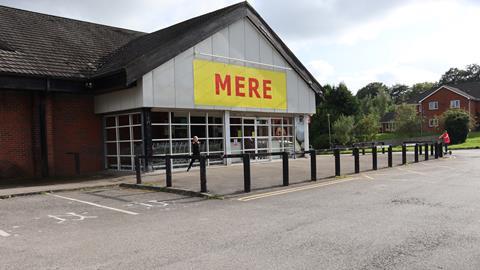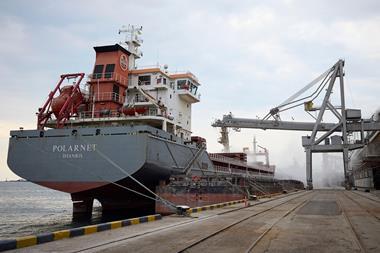Russian discounter Mere’s exit from the UK in March last year seemed inevitable.
It was already struggling to gain traction due to its hard discounter model, under which suppliers are paid only for items sold. Its single store lacked basic food lines – and customers – as a result.
Then came Russia’s invasion of Ukraine. The political implications were widely believed to be the final nail in the coffin for the fledgling UK operation. And so seemed the case, when Mere contacted suppliers telling them UK ambitions were on hold – announcing the closure of its only store, in Preston.
For the same reasons, few could have predicted Mere would be planning its UK return so soon.
As revealed by The Grocer last week, Mere UK is recruiting ahead of a planned relaunch. The business is offering £50,000 a year for a project manager role, based in London, with mandatory requirements including “skills in crisis management” and “experience in solving complex and non-standard tasks”.
So, what are the ‘complex, non-standard’ challenges for a Russian-owned company trading in the UK?
The most obvious is its Russian ownership. Mere was founded in 2009 in Krasnoyarsk, Russia, where it trades as Svetofor. In 2021, it claimed to have 3,200 stores globally. The UK is among a number of European countries the business exited following Russia’s invasion of Ukraine in February last year.
Except it didn’t completely exit the UK, as Mere UK remained registered at Companies House as TS Markt Ltd.
According to Zia Ullah, partner at Eversheds Sutherland, there are no restrictions that would prevent a Russian-owned company such as Mere trading in UK, nor a parent from funding its UK incorporated subsidiary. Although PM Boris Johnson touted a restriction on Russian deposits in the UK, it never came into effect. That’s in contrast to the EU, where there is a limit of €100,000.
“There is no specific sanction at the moment that prevents such an operation in the UK,” says Ullah.
However, he believes a Russian-owned UK incorporated company is nevertheless likely to encounter “significant difficulties in trying to facilitate commercial activity” here. “It is very unlikely that any UK [financial] institution will want to deal with it.
“If a company is not sanctioned itself, then it may not trigger any alerts [at a bank] but most UK financial institutions have configured their systems so that they are aware of connections with Russia,” Ullah adds.
In March this year, Mere had £4,169,400 in share capital, following the allotment of three million shares at £1 each. That followed the allotment in July last year of 169,400 shares at £1 each.
But even if it has overcome these financial obstacles, Mere still faces the challenge of winning over consumers. It hadn’t won over many before its exit and Russia’s invasion of Ukraine – so it seems unlikely to earn legions of followers now.
That said, the economic situation has changed since its initial foray into the UK. In the middle of a cost of living crisis, shoppers will be won over by price more than ever. If Mere can undercut Lidl and Aldi by as much as 30% – as it has always claimed it will – then it is sure to win some over.
Equally, there will always be some consumers who are unaware of any connection with Russia (for that reason, Mere is likely to shy away from any media attention highlighting this connection).
So for Mere, the biggest stumbling block may be supplier support. Mere was already struggling to win over enough suppliers before making its hasty exit. Many were put off by its terms, which involved them delivering directly to the store and only being paid for products that sold.
“The supplier will bear the brunt of all shrinkage and that is a difficult pill to swallow,” says one supplier source.
An even harder pill to swallow will be the “potential reputational damage by being linked to a Russian retailer” adds the source. “It cannot be overstated and I think many will not want to be associated with them while the war in Ukraine is going on.”
Without enough suppliers on board, Mere will never undercut Lidl or Aldi in any meaningful way or win over customers.
Before closing its Preston store, Mere was planning some adaptations to its model for the UK – so it may well have a plan to address some of the issues it encountered last time round.
Still, whoever lands the project manager role had better be world class at ‘solving complex and non-standard tasks’.




















No comments yet